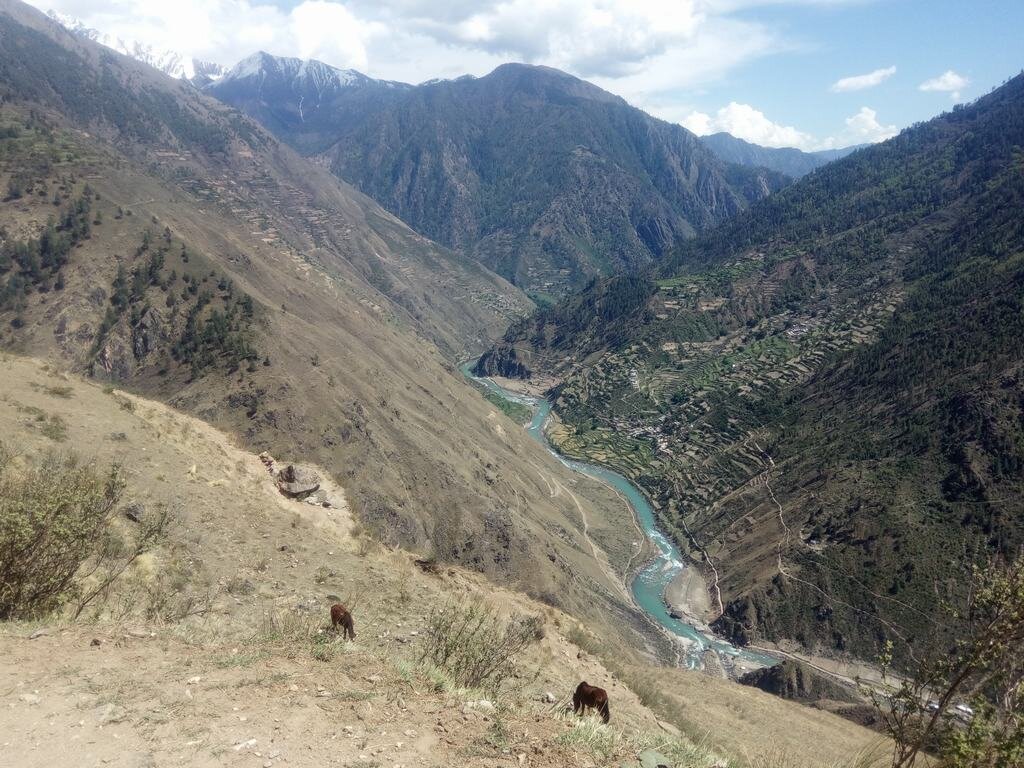![Statistics]()
Statistics
Dear Supporter,
Our programs are evaluated and monitored by the government, represented by the Social Welfare Council (SWC). Earlier this year a monitoring and evaluation team of the SWC conducted and submitted an extensive evaluation study, covering the last 5 years, on The Nepal Trust’s programs and projects in Nepal to the central Nepal government.
Linkage with the Government of Nepal policy in the report
The Nepal Trust and its partner organizations are committed to enhancing the Government of Nepal's initiatives in collaboration with local communities in the project areas. They aim to address the communities' needs for improved access to fundamental services such as healthcare, education, agriculture, food security, clean water, employment, and sustainable energy resources. The Trust's contribution lies in empowering underprivileged communities to enhance their own quality of life. The Nepal Trust has taken into consideration a range of government priority plans, including the National Health Strategic Plan (1997-2017), the National Safe Motherhood & Newborn Health Long-Term Plan (2006-2017), the Agriculture Perspective Plan (1997-2017), the Renewable Energy Subsidy Policy (2016), the Post-Disaster Recovery Framework (2016-2020), and the Millennium Development Goals (MDGs) while implementing the project activities.
Strengths
The Nepal Trust boasts an extensive track record spanning more than 25 years of engagement in Nepal. Its primary objective centers on collaborating with local communities to empower them through capacity-building initiatives. The organization has been successful in promoting awareness regarding girls' hygiene and Water, Sanitation, and Hygiene (WASH) activities among others.
Notably, the organization has established an effective network for coordination. The allocated funds appear to be judiciously utilized; meeting compliance conditions outlined in agreements. A noteworthy aspect is the unwavering support provided by the Nepal Trust UK Donors, sustaining project activities for over two and a half decades as of now.
Opportunities
This initiative has been executed in an extremely isolated and economically disadvantaged region of the Himalayas in Nepal, called Humla. As a result, the endeavors of the project have the capacity to instigate significant positive transformations in the designated districts, particularly in those that are remote and underserved.
Sustainability
The Nepal Trust actively involves local communities in its initiatives, encouraging them to secure local funding as a means of contributing to projects. This approach aims to establish a sense of ownership by the local government and helps to create a sense of ownership and motivation within communities, fostering their ability to sustain and care for their assets. Additionally, the Trust assists communities in tasks such as local grant writing and obtaining subsidies, establishing connections with local agencies and government bodies to enhance collaboration for long-term success.
Beneficiaries expressed a strong desire for the program to continue, signaling their willingness to play an active and proactive role in supporting ongoing development efforts.
Impact
In the healthcare sector, the project in Humla focused on community health, constructing health facilities, providing medicines and medical equipment, and raising awareness, particularly amongst women's groups, children, and maternal healthcare. Other efforts included child health education programs, such as the Little Doctors initiative, benefiting over 330 students, and support for government health facilities.
In the education sector, the project contributed to the construction and repair of school buildings in various locations, providing libraries, capacity-building programs, and educational materials. The project has generated lasting impacts across various dimensions in the project districts, including social, economic, behavioral, environmental, and infrastructural aspects. These effects are expected to persist even after the project concludes.
All the health clinics from the project have now been brought under the government system in close coordination with the HO and respective local bodies. It also paves the path of sustainability through the transformation of resources and responsibility to the government to continue the services in future. Likewise, schools that have been constructed through the support of the project and have also been handed over to the government for their proper operation.
The overall performance of projects undertaken by Nepal Trust UK has been commendable, reaching a substantial number of beneficiaries and achieving the desired project outputs. Through analysis and on-site visits, the financial performance of the project has proven to be highly satisfactory. In all it goes without saying that your valuable contributions and support towards us made a significant impact, over the last 5 years, in which over 35,000 treatments took place and many lives have been helped.
On a very sad note we have to inform you that one of our main supporters and past chairman of The Nepal Trust, Tony Sharpe, has passed away at the age of 84 last week. Many of our supporters will have known Tony through the years of attending our AGMs, or perhaps even trekked with Tony in Nepal. We send our sympathies to Pat and family at this very difficult time. Tony was a pillar in making the Trust a success and was a life-long supporter. We are sure he was very proud of what we, together with you as our supporters, have accomplished over the last years to help those in need in Nepal.
Rest in peace Tony.
We hope that we can carry on to do him proud and will continue our work with your support through this GlobalGiving platform, that Tony helped connect us with. We hope that in the upcoming years we can help many more people in need as well.
Namaste,
Jeroen and Anna, on behalf of The Nepal Trust team.
![Baby care in clinic]()
Baby care in clinic
![Mother and new born baby]()
Mother and new born baby
![Mother and child]()
Mother and child
![Baby care at Nepal Trust birthing centre]()
Baby care at Nepal Trust birthing centre
![Tony opening a new school in Humla District]()
Tony opening a new school in Humla District
![Tony and Sally in a rikshaw at Nepal-Indian border]()
Tony and Sally in a rikshaw at Nepal-Indian border
Links:
![Share on Twitter]()
![Share on Facebook]()
